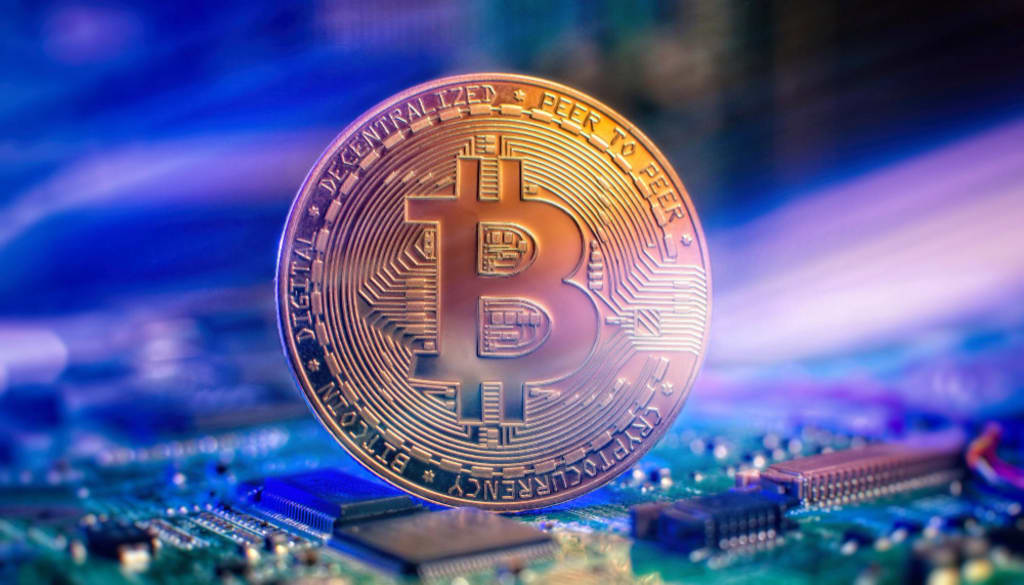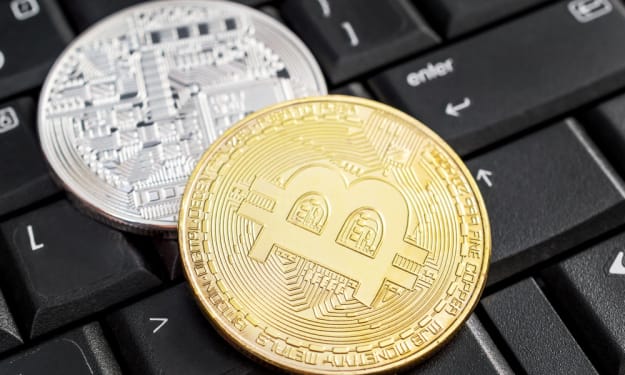The quest to find bitcoin’s founder highlights the currency’s biggest threat the taxman
Crypto market

Bitcoin lovers have as of late been irritated by claims that an Australian named Craig Wright and his departed accomplice are the puzzling pioneers behind the digital currency.
Obviously, we've been down this way previously. The New York Times, Quick Organization, The New Yorker, and Newsweek have all made comparative cases about various individuals, just to be disproved. Furthermore, last month, Wired - the magazine behind the latest case - said there are motivations to accept Wright is really a hoaxer and not "Satoshi Nakamoto," as the cash maker is known.
Whether or not the new cases are right, it has restored a concern that has long tormented bitcoin clients. Around 1,000,000 bitcoins were mined right off the bat in the money's set of experiences and have never been moved. Were they to be sold all at once, bitcoin's worth could drop steeply, clearing out a lot of riches and undermining its status as dependable substitute money, free of banks and legislatures.
Nonetheless, the detailing about Wright and the bitcoin organizations and trusts he has laid out - probably for expense and mystery purposes - uncovers a considerably greater danger to bitcoin clients and different allies of virtual money: how might such monetary standards be treated for charge purposes?
This is an inquiry I have been investigating for the last ten years, both concerning virtual monetary standards intended to be utilized exclusively on the web, for example, for Universe of Warcraft, and those intended for use in reality, for example, bitcoin
Cash or venture?
Bitcoins are made by a PC calculation and are at first dispensed through a cycle conversationally alluded to as "mining." Diggers gather bitcoins by tackling complex numerical conditions used to verify moves and in this manner both carry a greater amount of the cash into the world and keep up with the framework.
Bitcoin clients have a public key and a confidential key related to the bitcoins they own. To impact an exchange, one should utilize the confidential key. Nonetheless, moves are recorded on a public "blockchain," which utilizes the related public key.
This solid freely available report keeping blocks the requirement for outsider mediators, similar to banks. While the world can see the public key and the number of bitcoins related to it, the proprietor of the bitcoin can stay unknown assuming he keeps quiet.
Roughly 15 million bitcoins have been given to date, and they are presently esteemed at about US$430 each, for a sum of roughly $6.5 billion. The calculation is intended to create 21 million bitcoins, and specialists guess that the last bitcoin will be given at some point somewhere in the range of 2110 and 2140.
Bitcoin is intended to be utilized as money, however, some hold it as a venture. The trouble is that states have taken various situations on the idea of bitcoin for charge purposes.
For example, a few nations, remembering those for Europe, have characterized bitcoin as money for utilization charge purposes, implying that the different worth-added charges don't matter to bitcoin trades, while others, like Australia, have not. Also, the U.K. treats bitcoin as unfamiliar cash for annual duty purposes, while the U.S. sees it as property.
The people who "mine" bitcoins will probably be dependent upon personal expense on the worth they get under the hypothesis that they are being made up for approving bitcoin exchanges and keeping up with the blockchain that records all exchanges. Yet, this is valid whether or not bitcoin is perceived as cash. As such, they are not actually mining and are not exposed to the perplexing guidelines overseeing mining tasks. All things being equal, they are being made up for administrations.
The trouble emerges when individuals attempt to spend their bitcoins, in any case, obtained.
How cash exchanges are burdened
The people who spend nearby cash, like dollars (the U.S. or on the other hand Australian) or euros, don't report an increase or misfortune when they do such. For example, in the event that I purchase a cheeseburger, I don't have an addition or misfortune on the money utilized, whether or not it has changed esteem compared with different monetary standards.
As the pattern money, a dollar is valued at a dollar, despite the fact that it might vary against different monetary forms or be impacted by expansion.
An unfamiliar case is unique. Assuming that I purchase a euro for $1 and spend it later, when it is valued at $1.10, hypothetically I have a $0.10 gain that I ought to be burdened on. Various nations have various guidelines, yet in the U.S., citizens need not pay charges on such gains in the event that they are under $200 in a given year.
By declining to group bitcoin as cash for personal duty purposes (nearby etc.), charge specialists successfully treat bitcoins as some other property, implying that the people who purchase things with bitcoins should report any increase on the exchange related to an adjustment of its worth. That is, it is dealt with like a venture, paying little heed to how the proprietor really utilizes it.
Maybe they sold their bitcoins for money and afterward utilized that money to make a buy. More terrible yet, if the bitcoin has gone down in esteem, citizens probably won't have the option to deduct the misfortunes, since they could be viewed as private. In this way, anybody utilizing bitcoin as money needs to monitor each bitcoin's expense with the goal that he can precisely work out gain or misfortune.
This regulatory undertaking joined with the possible need to settle personal expenses, could make bitcoin too hard to even think about utilizing as substitute money.
Wright's burdens
Wright's story of burden with the Australia Expense Authority (ATA) (uncovered in a record unveiled as a feature of the work to demonstrate that he is Satoshi Nakamoto) shows how the choice not to characterize bitcoin as cash makes issues with a duty on labor and products (GST).
In addition to other things, Wright looked to make a trade to trade bitcoin. On the off chance that bitcoin was viewed as money, such trades would be excluded from the GST, and the trade could work monetarily. Notwithstanding, in the event that the GST applied to such exchanges, as the ATA guaranteed, the trade would be compelled to buy $1 of bitcoin for $1.10 (expecting a 10% rate).
All in all, on the off chance that you utilize typical money, it would cost you $1, however assuming you use bitcoin, it would cost $1.10. Bitcoin turns into much less alluring under those circumstances.
To stay away from this outcome, Wright and his legal counselors laid out various seaward trusts and contended that, for the vast majority of the exchanges the ATA was researching, no bitcoin was really moved. All things being equal, the user interests in the trusts, which were not exposed to the GST, were moved. The bitcoin itself was purportedly held seaward, and any exchange of the bitcoin or freedoms to it was outside the range of the ATA.
The issue for charge specialists
It's not satisfactory whether such contentions would really succeed, yet they show a genuine issue that theoretical resources raise both utilization and personal duties, particularly for nations that utilize a regional duty framework (that is, one that doesn't burden unfamiliar pay).
Assuming resources are viewed as outside a given country, they won't be dependent upon that nation's GST or identical duty. Also, on the off chance that the resource can be "wrapped" in a trust or other substance whose possession interests are excluded from the GST, it might possibly get away from the charge regardless of whether it is held locally.
Essentially, assuming such resources produce pay, for example when they are traded, under a regional framework, that pay will be burdened in the nation where the deal happened.
It isn't business as usual that Wright laid out at any rate a portion of his trusts in known expense safe houses, like Seychelles. Regardless of whether his endeavors to safeguard bitcoin from charge through these endeavors succeed, they are extremely confounding for the typical client and will probably additionally hinder bitcoin's reception as substitute money.
Bitcoin's test
A significant part of the new spotlight has been on whether Wright truly made bitcoin and whether he is perched on a crowd worth nearly a half billion bucks, which might actually undermine the market.
Notwithstanding, the genuine danger to bitcoin and other comparative items might come from an undeniably more everyday source: the world's expense specialists. Missing positive decisions, each bitcoin exchange could produce both pay and utilization charge responsibility, delivering bitcoin illogical as substitute money.
Refined charges intending to stay away from such results could succeed however would make bitcoin harder to utilize.
In this way, bitcoin was created as a way to liberate people from the need to collaborate with outsiders, including the public authority, regardless of requirements for legislative participation on the off chance that it is to move from the edges to the standard.
If you like to get rich with bitcoin you can get access from
>>Here<<How To Get Rich With Bitcoin Even If You Have No Clue About Technology
Do you like to Reap Massive Crypto Profits?
About the Creator
Sithum Chathumina
I am an experienced cryptocurrency trader and I am an expert in trading






Comments
There are no comments for this story
Be the first to respond and start the conversation.